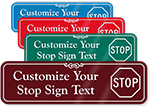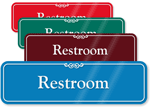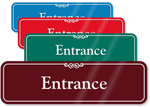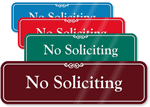Are these grocery store dress code policy signs justified?
A few weeks ago, we asked the question, “Do store owners really have the right to refuse service to just anyone?” The answer, of course, was no, but in examining some of the issues that surround this query, we mentioned the case of an Orthodox Jewish group in Brooklyn, fighting to keep immodestly dressed patrons out of their stores with signs posting a dress code policy.
Located in an ultra-religious Satmar neighborhood, the stores posted signs detailing a modest dress code, specifically stating that shorts, bare feet, sleeveless tops, and low-cut necklines were not allowed to be worn in the stores. Now, there are seven grocery stores being taken to court by the NYC Commission on Human Rights, which aims to fine the store owners for “demanding modesty” from potential customers.
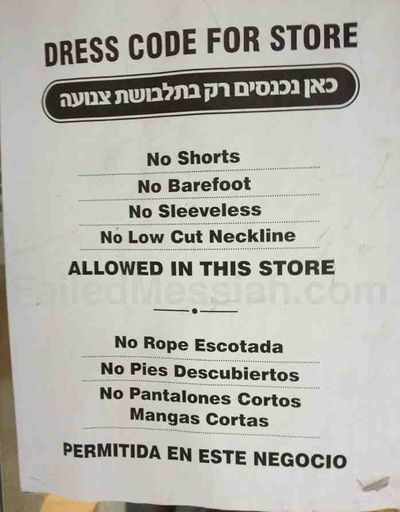
One of the signs posted in Williamsburg. From Failed Messiah.
The business owners and advocates for the religious community insist that there is nothing wrong with merely requesting a dress code, citing the fact that the courthouse where the hearing is to take place likely has a preferred standard of dress of its own.
But, setting aside the question of whether or not enforcing a dress code in a grocery store is reasonable, the Commission on Human Rights says the signs are discriminatory. Clifford Mulqueen, the Deputy Commissioner and General Counsel says that while there’s nothing wrong with a dress code, there is a problem with the wording of the signs.
“What the law says is that you can’t advertise in a way that might make one protected group of individuals uncomfortable,” Mulqueen said. “When you speak about sleeveless shirts or low-cut necklines, you’re specifically referring to women’s dress, and that may make women feel uncomfortable and unwelcome.”
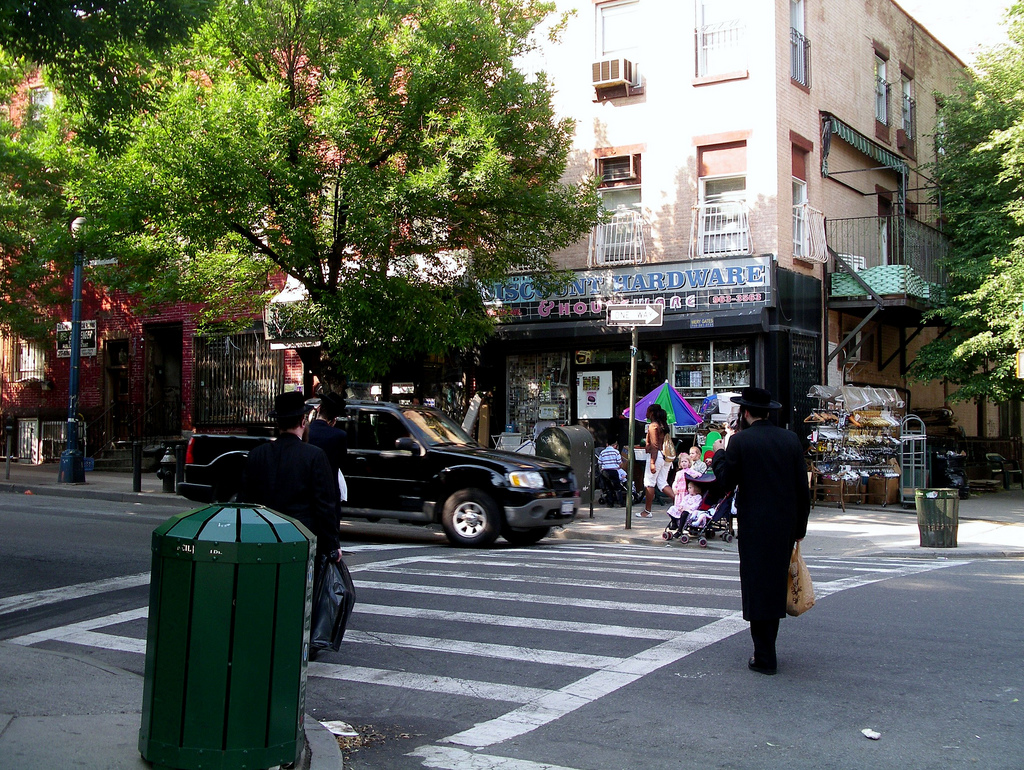
A street corner in Williamsburg, Brooklyn. From Matthew Rutledge.
Unfortunately for the modesty patrols, women are a protected class, so a dress code requiring that women cover up isn’t comparable to the jacket requirement at the Four Seasons. The signs seem particularly unfair when one considers the unlikelihood that the average woman would adhere to the dress code policy on one of New York’s sweltering summer days. Still, a radio ad put out by the Orthodox Jewish Public Affairs Council insists that everyone is welcome, regardless of race, religion or gender and that the dress code signs are completely legal.
The business owners could be ordered to pay up to $5,000 in fines if found in the wrong.
What do you think? Weigh in below.
Category: New Products

